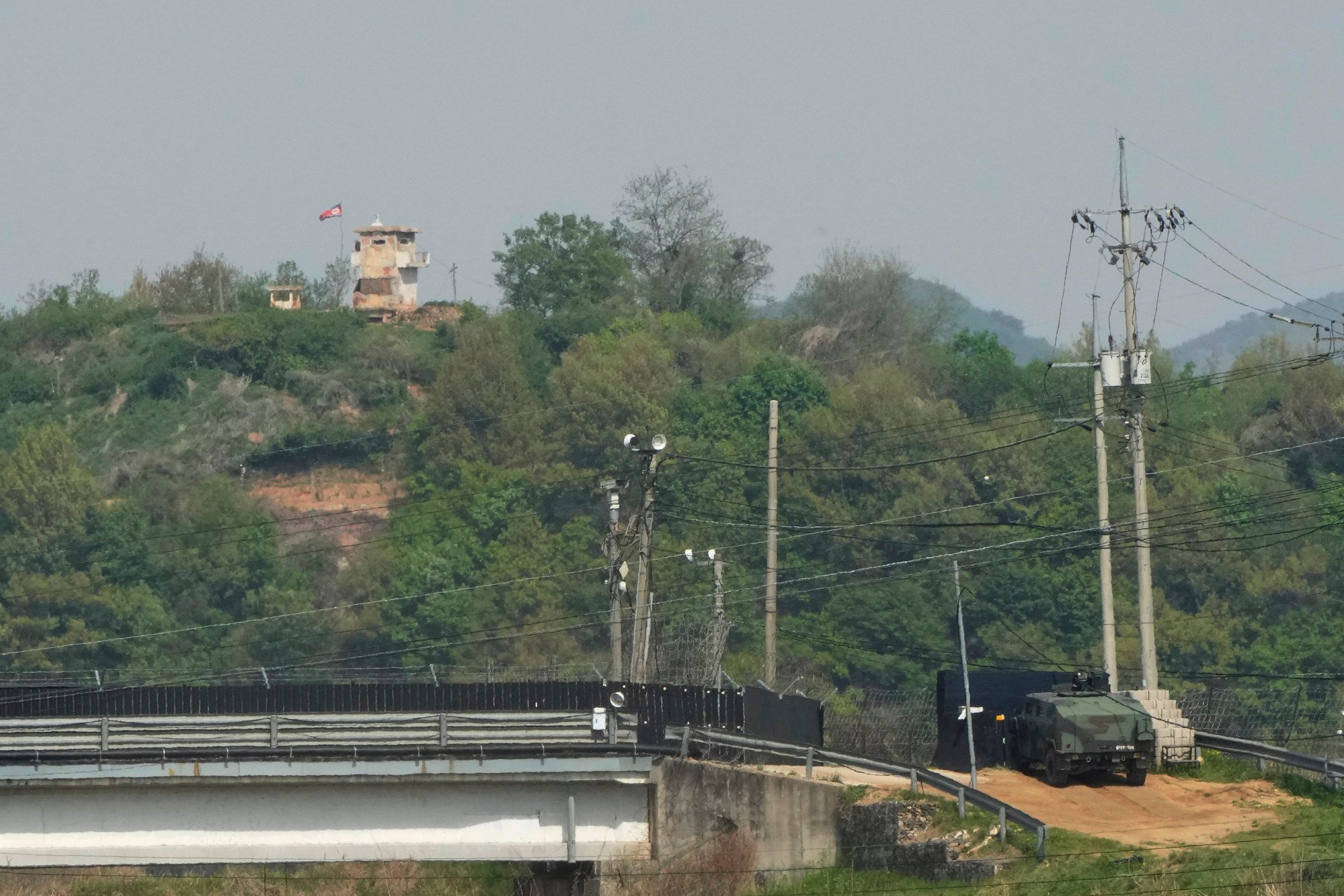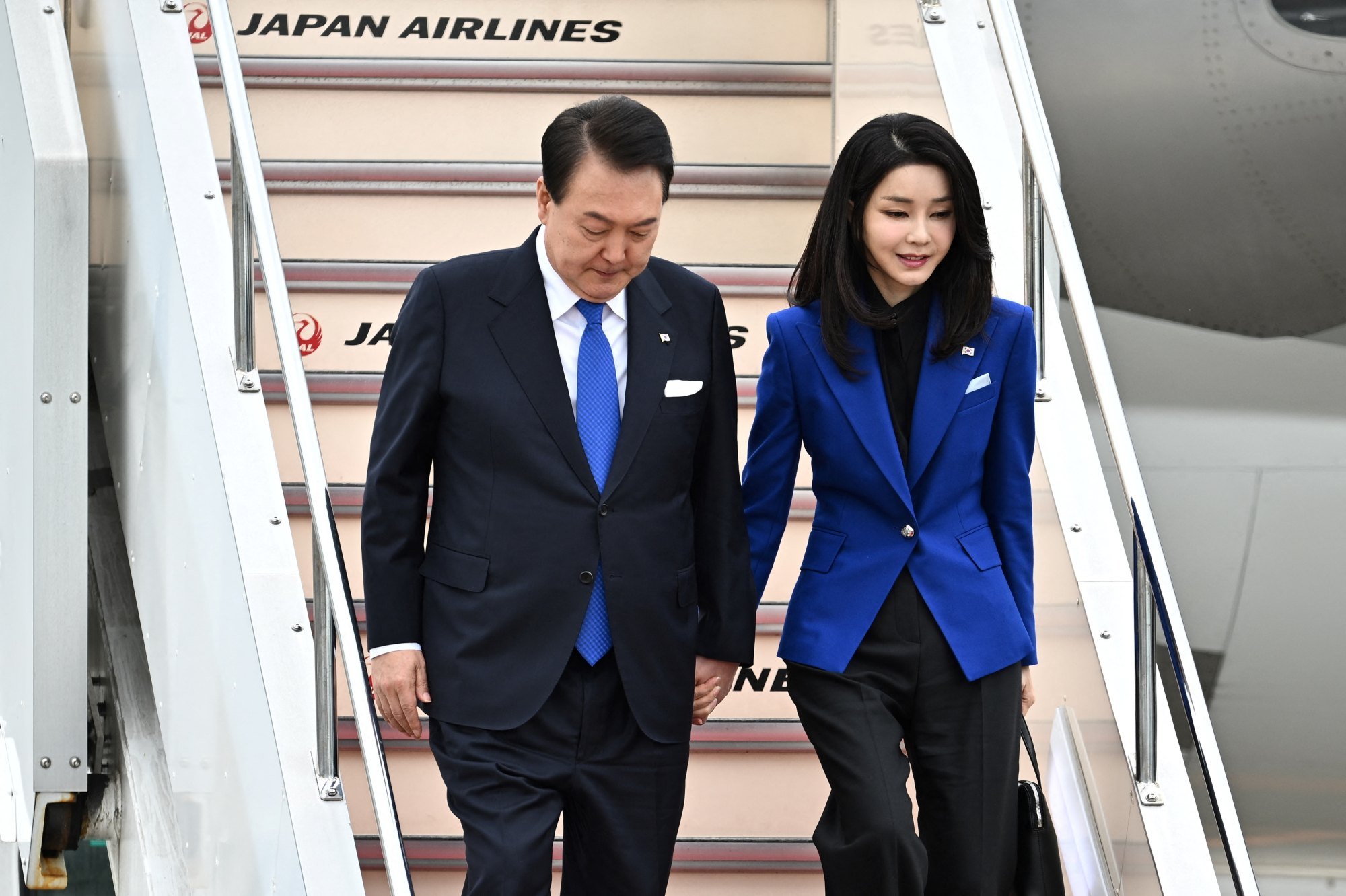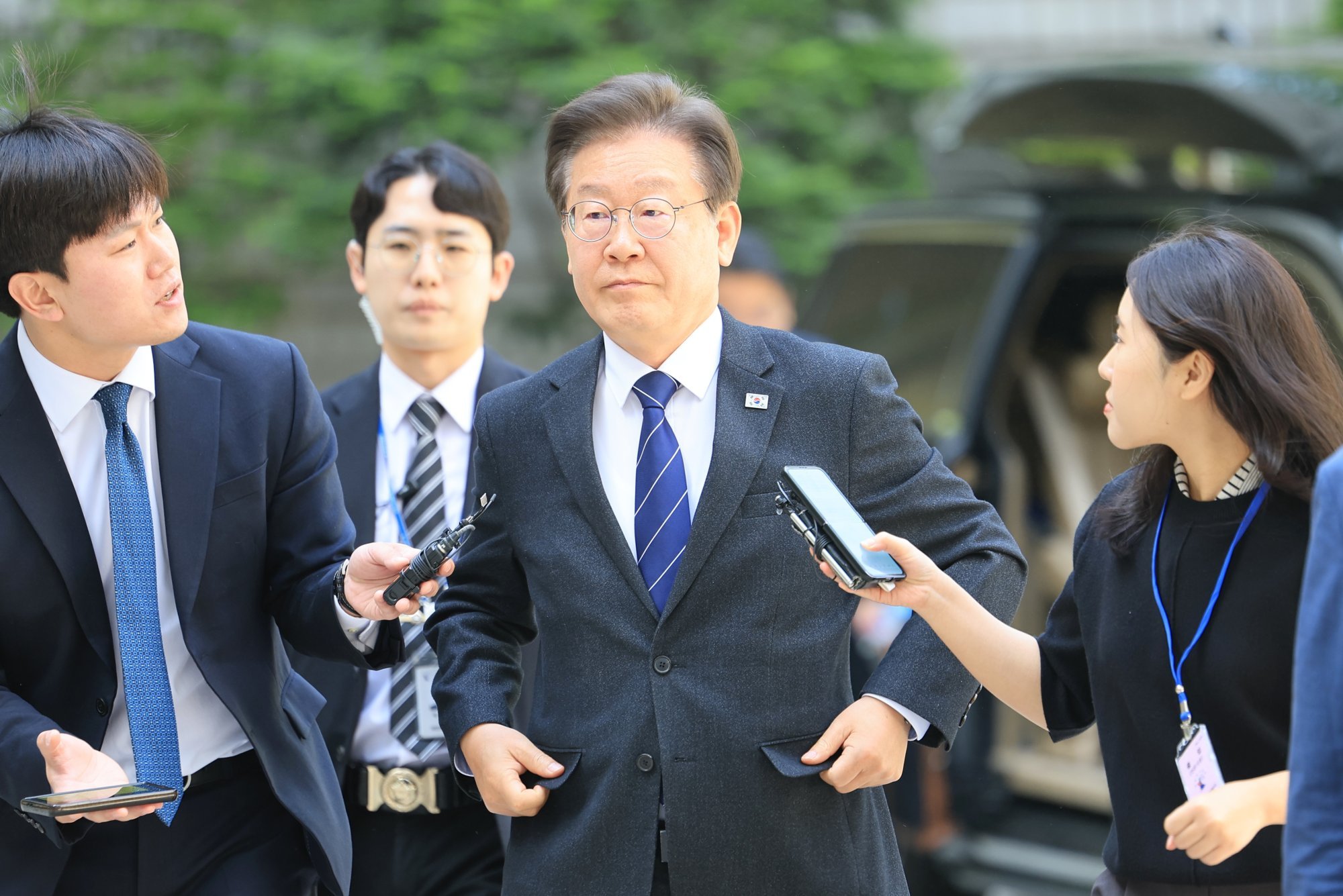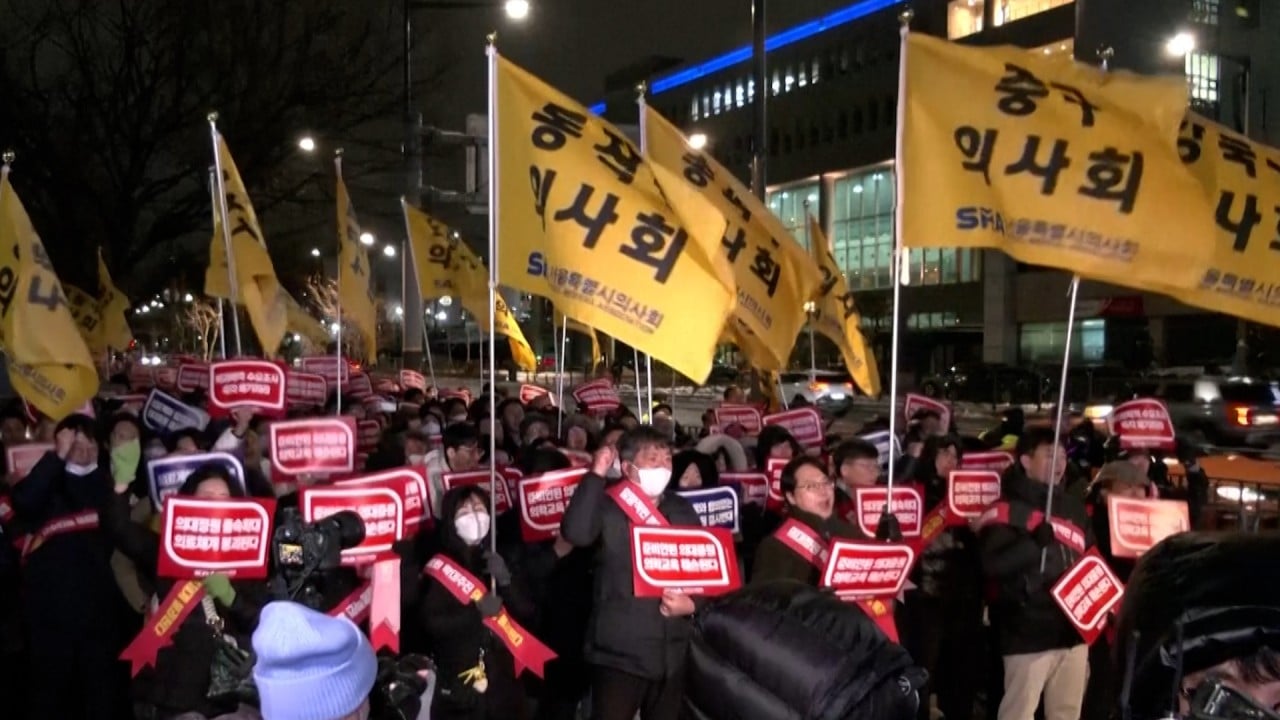The request comes ahead of planned inquiries by the opposition-controlled National Assembly into potential abuses of power and corruption within the Yoon administration.
Lee’s Democratic Party of Korea (DPK) won 175 of the 300 National Assembly seats in this month’s elections, while Yoon’s ruling conservative People Power Party managed to secure 108 seats, seven more than the 101 seats needed to prevent opposition parties from impeaching the president.
Satire or ‘fake news’? Yoon accused of conflating both ahead of South Korea polls
Satire or ‘fake news’? Yoon accused of conflating both ahead of South Korea polls
“I felt frustrated and disappointed,” Lee was quoted as saying by the DPK spokesman, Park Sung-joon, of the 130-minute-long discussion over tea with Yoon at the presidential office on Monday.
“I find the meeting’s significance in the fact that we have taken the first step towards dialogue.”
Lee opened the meeting with a 15-minute live televised speech, calling for policy adjustments aimed at alleviating the economic hardships faced by the population, including high inflation, rising interest rates and a fluctuating exchange rate.
Lee referenced the 2024 Democracy Report issued by the Varieties of Democracy (V-Dem) Institute at the University of Gothenburg, which raised concerns about South Korea’s democratic trajectory since Yoon took office in May 2022.
“We’re now living in a world where people are concerned they might be arrested if they speak wrongly,” Lee said, accusing the government of cracking down on critical news media and journalists.

“People are concerned that exchanging barbs would result in the exchange of bombs” between the two rivals, Lee said, urging Yoon to seek ways to defuse mounting tensions with the North.

Shifting gears, Lee advocated for a diplomatic stance prioritising national interests, particularly in terms of Japan, citing territorial disputes and historical grievances.
After Lee’s opening speech, the talks shifted to a closed-door session in which Yoon dominated the conversation “at a ratio of 85-15”, according to the DPK spokesman.
In February, thousands of young doctors staged a strike in response to a government proposal to significantly increase medical-school admissions. They were joined by a large number of medical professors, leading to delays in surgical operations and emergency treatments at major hospitals.
Choi Jin, head of the Institute of Presidential Leadership think tank, said the meeting – the first between the two since Yoon became president two years ago – had been closely observed by many.
“It’s especially disappointing that there was no tangible agreement on the crucial issue of improving people’s livelihood,” Choi told This Week in Asia, adding the meeting was doomed to fail as there had been no prior consultations to set the agenda.
“However, it’s somewhat encouraging that the two agreed to meet again,” Choi said, noting that Yoon and the ruling party’s leaders had previously refused to meet Lee, labelling him a suspect awaiting trial for alleged corruption related to financial dealing during his time as mayor of Seongnam.
Lee has denied the charges, calling them politically motivated.
It is unclear when the next Yoon-Lee meeting might be.

Political Science Professor Lee Jun-han of Incheon National University said the meeting confirmed there was little possibility of Yoon changing his course of action and adjusting his stubborn governance style, despite the results of the recent election being seen as a rebuke of his leadership.
But he said it was “better than nothing” as the encounter was at least an attempt to “bridge the political divide” in an atmosphere fraught with partisan tensions.
Jung Suk-koo, a former executive editor of the independent Hankyoreh newspaper, said the meeting had granted Yoon a facade of reaching out to the opposition following his party’s election defeat.
“The main opposition party will face mounting pressures from activists and the Reform Korea Party to step up campaigns against Yoon,” Jung said, referring to a new militant opposition party that emerged as the country’s third-largest political entity after surprisingly grabbing 14 seats in parliament.
“Tensions between the ruling faction and opposition parties are set to escalate further, igniting fervent confrontations,” Jung told This Week in Asia.


